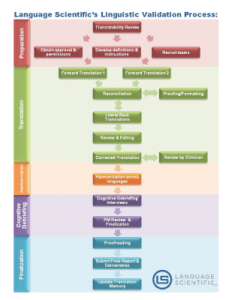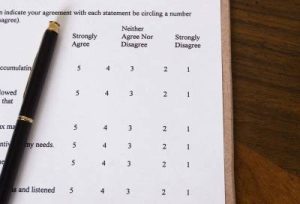As I stated in a previous blog (What is the Difference Between Translation and Interpreting?), interpreting is an oral or verbal form of translation, enabling real-time cross-linguistic communication. This is the process where a person repeats out lout what the speaker has said in a different language. Interpreting takes on various forms depending on the context and … Learn More
Author: languagescientific

Many of today’s multicultural, multinational corporations have speakers of dozens of global languages on staff. When documents, such as contracts, product manuals, or websites need to be translated into foreign languages, many managers wonder whether they really need to outsource translation or do it in-house with the help of their multilingual employees. These employees understand … Learn More

This year Croatia becomes the 28th EU member state to require CE Marking. This means that manufacturers will be able to place products, devices and machines on the Croatian market, but those items must have documentation in the Croatian language. After reading the above sentence you may find yourself asking, “what is CE marking, and what … Learn More

Not many people think of translators until they either need one or they find something that has been mistranslated. Let’s be honest, many don’t even know why we need translators. Some, when looking for translation, don’t think beyond selecting the cheapest or easiest translator with no real consideration of theirsubject matter expertise and quality. Translators … Learn More

On October 1, 2012 the US Federal Transit Administration (FTA) and Department of Transportation (DOT) finalized and released Circular 4702.1B which clarifies and explains guidelines for Title VI language and translation requirements. Previously the DOT language requirements were confusing. Some transportation agencies did not understand that the language requirements applied to them. To address the … Learn More

This blog on Pharmacy Language Requirements rightfully belongs to our subsidiary RxTran, but since our CEO Brian Kratt is standing today to deliver a presentation on nationwide pharmacy language laws and options for pharmacies to offer language services, I thought it only right to make it my blog topic. Increasingly, pharmacies recognize the mandates to … Learn More

If you do not know what it means, linguistic validation and cognitive debriefing may sound complicated and intimidating. Those in clinical research know that linguistic validation and cognitive debriefing are necessary for qualifying an instrument’s validity for use in multinational trials and protecting research data pools. Without linguistic validation and cognitive debriefing, clinical research trials … Learn More

If you are visiting our blog this week to read about Cognitive Debriefing, please check back next week. We find this topic way too important to release on our blog in the middle of a short week (due to our national holiday), and by the way, Happy Independence Day! Summer is upon us, and … Learn More

In an earlier blog (What is Linguistic Validation?) we discussed what is involved with linguistic validation; we now turn our attention to explaining cognitive debriefing, sometimes referred to as pilot testing. As stated before, linguistic validation and cognitive debriefing are needed to qualify an instrument’s validity and to protect clinical research data pools. The US Food and … Learn More

There is a debate about bringing the language of Informed Consent Forms (ICFs) down to a level that is more universally understandable. If English speakers struggle to understand the language of Informed Consent Forms, imagine the difficulty that exists for people with limited English proficiency (LEP). The US Food and Drug Administration (FDA) (21 CFR … Learn More